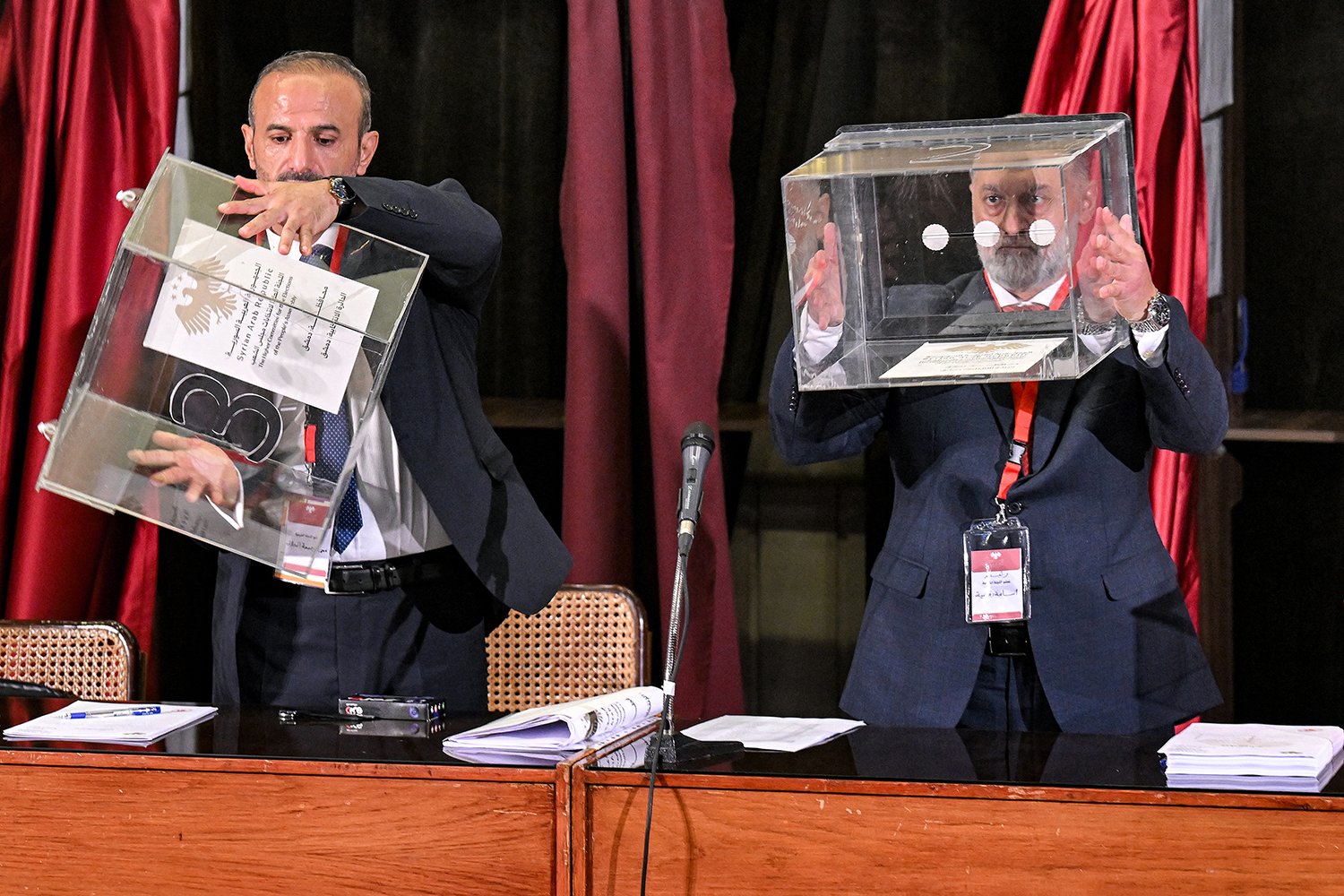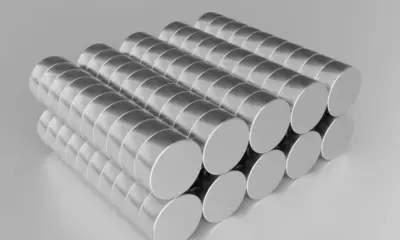Top Stories
Syria’s Elections: New Challenges Emerge for Sharaa’s Regime

UPDATE: Syria has just conducted its first parliamentary elections under interim President Ahmed al-Sharaa, raising significant concerns about the legitimacy of the process. On October 5, 2024, only a few thousand Syrians participated in a tightly controlled election aimed at filling 119 of the 210 seats in the People’s Assembly, yet many critics argue the elections maintain the authoritarian traditions of the past.
The elections were held under a newly established five-year transitional framework, as declared by Sharaa in March. However, doubts loom over the assembly’s ability to act independently. Observers fear that it merely serves to legitimize the regime’s ongoing control. Candidate Adham Masoud al-Qaq, a prominent figure in Syrian politics who returned from exile after the Assad regime’s collapse, noted a troubling trend: “We could clearly sense that this or that person would win as a representative before the voting even took place,” highlighting the lack of genuine competition.
Despite the government’s argument that traditional elections were impossible due to the ongoing crises, the election process itself has been criticized as opaque and corrupt. Radwan Ziadeh, a senior fellow at the Arab Center Washington DC, remarked, “You can’t really call these elections. It was more the formation of Syrian legislative power.”
Out of approximately 6,000 delegates nominated across the country, only six women and ten minority candidates were elected, showcasing a significant gap in representation. The overwhelming majority of seats went to Sunni men from the administrative elite, raising questions about the true inclusivity of the electoral process.
Amidst ongoing international scrutiny, Sharaa has been preoccupied with diplomatic engagements, including a meeting with Russian President Vladimir Putin in Moscow and a forthcoming encounter with U.S. President Donald Trump on November 10, marking the first meeting between a Syrian president and a U.S. leader since Syria’s independence in 1946.
The elections were organized under a system that many describe as closed and controlled, with subcommittees retaining full authority over candidate selections. Local voices like Basem Hamzeh, a member of the rural Damascus subcommittee, indicated that many residents were unaware that elections were even occurring, further underscoring the disconnect between the regime and the populace.
As the dust settles on this election, the political landscape in Syria remains fraught with challenges. The interim government under Sharaa struggles to establish legitimacy while facing criticism over its failure to ensure a fair electoral process. The coming weeks will be crucial for Sharaa’s administration as it navigates both internal discontent and external diplomatic pressures.
With ongoing civil unrest and a population deeply affected by years of conflict, the path ahead for Syria’s political future remains uncertain. Observers and citizens alike will be watching closely as the regime attempts to solidify its power amid growing skepticism about its commitment to true democratic governance.
As developments unfold, political engagement remains a flickering hope for many, though the struggle for genuine representation and reform continues in this war-torn nation.
-

 Health2 weeks ago
Health2 weeks agoInnovative Surgery Restores Confidence for Breast Cancer Patients
-

 Top Stories2 weeks ago
Top Stories2 weeks agoMarc Buoniconti’s Legacy: 40 Years Later, Lives Transformed
-

 Sports4 weeks ago
Sports4 weeks agoSteve Kerr Supports Jonathan Kuminga After Ejection in Preseason Game
-

 Science4 weeks ago
Science4 weeks agoChicago’s Viral ‘Rat Hole’ Likely Created by Squirrel, Study Reveals
-

 Politics4 weeks ago
Politics4 weeks agoDallin H. Oaks Assumes Leadership of Latter-day Saints Church
-

 Lifestyle4 weeks ago
Lifestyle4 weeks agoKelsea Ballerini Launches ‘Burn the Baggage’ Candle with Ranger Station
-

 Entertainment4 weeks ago
Entertainment4 weeks agoZoe Saldana Advocates for James Cameron’s Avatar Documentary
-

 Business4 weeks ago
Business4 weeks agoTyler Technologies Set to Reveal Q3 2025 Earnings on October 22
-

 Top Stories2 weeks ago
Top Stories2 weeks agoBOYNEXTDOOR’s Jaehyun Faces Backlash Amid BTS-TWICE Controversy
-

 Business3 weeks ago
Business3 weeks agoZacks Research Downgrades Equinox Gold to Strong Sell Rating
-

 Health3 weeks ago
Health3 weeks ago13-Year-Old Hospitalized After Swallowing 100 Magnets
-

 Health4 weeks ago
Health4 weeks agoCommunity Unites for Seventh Annual Mental Health Awareness Walk









